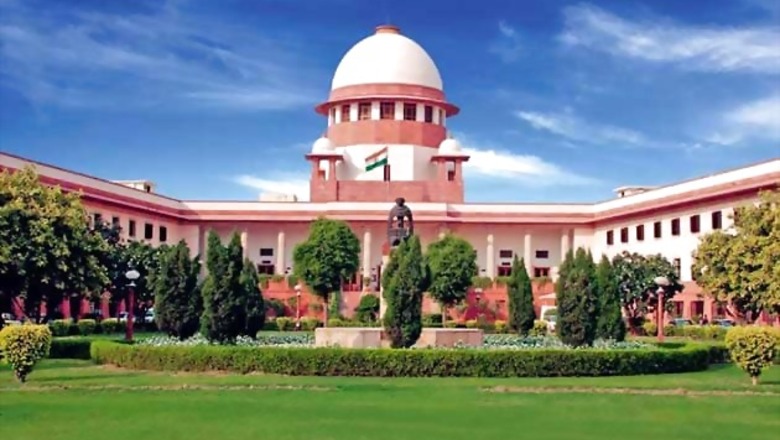
views
New Delhi: The Supreme Court Bar Association (SCBA) on Thursday strongly favoured in the Supreme Court the laws, meant to replace the collegium system of judges appointing judges, saying that there has been "unanimity" that the present mechanism has "serious pitfalls".
"There is unanimity in the view that there are serious pitfalls in the collegium system," SCBA president and senior advocate Dushyant Dave told a three-judge bench headed by Justice AR Dave.
The government of the day is free to notify the Act at a "politically opportune" time, the bar leader said, adding, "the Constitutional amendments are never stayed by the courts and even for staying an Act, extreme caution should be exercised and it can be done in the rarest of rare cases."
He said that the pleas, challenging the validity of the Constitutional Amendment Act & the National Judicial Appointments Commission (NJAC) Act, are "premature" as they have not been notified.
"You cannot test a law on the premise that it may be abused in future," Dave told the bench, also comprising justices J Chelameswar and Madan B Lokur and sought dismissal of pleas opposing the laws.
Referring to senior advocate FS Nariman's arguments against the laws, Dave said, "Mr. Nariman has said it publicly he is sad that he appeared in the second judges case (which had paved way for collegium system)".
In his rejoinder submissions, Attorney General (AG) Mukul Rohatgi, appearing for the Centre, took his defence to the laws to a higher level and said, "even if the Act is notified tomorrow, there would not be any cause of action unless it is operational and something happens in a specific case."
Earlier, the AG had said pleas were "premature" as the laws have not come into force in the absence of notification and there was also no cause of action.
Terming the petitions of "academic interests", Rohatgi on Thursday referred to a case law and said, "It is well settled in the Minerva Mills case that the Supreme Court does not decide academic questions".
At the outset, Dave cited various case laws in support of his arguments that the pleas were "premature" and should not be entertained at this stage and the government is free to notify at the time convenient to it.
Dave said that the pleas be dismissed or the present three-judge bench can also decide the constitutional validity of the law and hence, it need not be referred to a larger bench.
Nariman, in his rejoinder submission, cited Constitutional provisions and said that the NJAC Act should not have been passed ahead of enabling Constitutional amendment.
"Where was the authority to pass the NJAC Act?," he said, adding that it (NJAC Act) should have been passed after the Constitutional amendment. Nariman also questioned the Government for not adopting the model of five-member collegium, recommended by the MN Venkatachaliah Commission, comprising three judges and two members from civil society.
Senior advocate and former Solicitor General TR Andhyarujina also supported the central government saying that nowhere in the world, the system of judges appointing judges is operational.
Mathews J Nedumpara, a Mumbai-based advocate who has also filed a petition on the issue, irked the bench with his submission that the collegium system has led to a situation where eight judges of the Bombay High Court are kith and kin of judges and two others were juniors to the Chief Justices.
"Will you give an undertaking that this (NJAC) Act will stop all this," the bench said and fixed the matter for further hearing on March 24. Earlier, the Centre had termed the collegium system as "illegal" and had said that "everything is not well" with it.
The apex court is hearing the matter to decide whether petitions challenging the validity of the Constitutional Amendment Act & the National Judicial Appointments Commission (NJAC) Act were maintainable or not.
"Test the validity of the law when the law is brought into force and is capable of affecting the rights of the people," the AG had submitted, adding that there was no cause of action to examine the law for which its opponents have sought a stay.
The Supreme Court Advocates on Record Association (SCAORA) and Bar Association of India (BAI), represented by Nariman and Anil Divan respectively, opposed the two Acts and sought that direction be passed to maintain status quo otherwise the entire process would become irreversible.

















Comments
0 comment